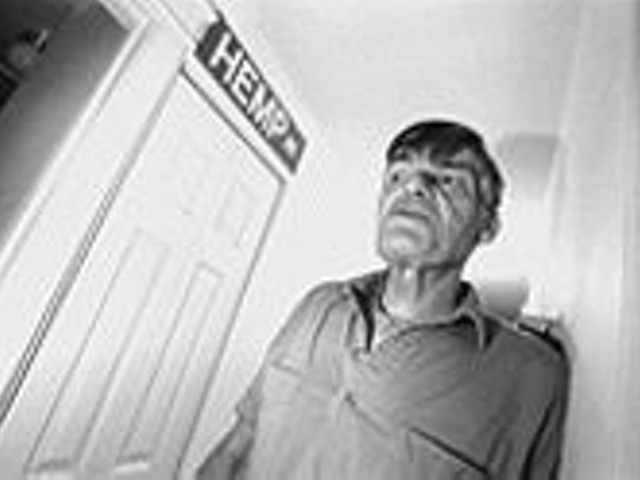The story in question was "Peter and the Wolf," a Nov. 3 profile of world-class botanist Peter Raven, director of the Missouri Botanical Garden. Unlike the usual glowing profile of Raven, this one ended up focusing on a hot spot of criticism: his uncritical view of agricultural biotechnology, especially that of Monsanto, the Garden's largest corporate donor. We were kind of hoping he'd welcome the challenge; after all, as Raven himself had observed, profiles of him "usually seem unreasonably flattering."
Instead, Raven's deputy director, Jonathan Kleinbard, wrote the Garden's 49-person Members' Board the day after the Nov. 3 RFT hit the streets, informing them that the story "misrepresented Peter's views on genetic engineering (and) the relationship between Monsanto and Peter, which it characterizes in the most vicious, sleazy fashion, without having interviewed him on those issues."
"Vicious" and "sleazy" ... are a matter of opinion. But without having interviewed him? Had the fax blurred the real sentence? No, Kleinbard said it again in his memo: "Peter was never interviewed directly on the subject of genetically modified (GM) crops or the nature of the Garden's relationship to Monsanto."
We reached for the story, which teemed with direct quotes from Raven, commenting specifically on those very issues. He'd talked about genetic modification in principle; about agricultural biotech in particular; about crops engineered with the organic pesticide Bt and the risk to monarch butterflies and other beneficial insects; about genetically modified foods' safety and the reliability of government regulation; about the safety of Monsanto's Roundup herbicide, resistance to which is engineered into their Roundup Ready crops.
He'd also explained his wife's executive position at Monsanto and said why it would never influence him; addressed Monsanto's history and environmental practices; described Monsanto's donations to the Garden and the natural overlap in the missions of the two organizations....
Where did Kleinbard think we'd gotten all those quotes?
Memo in hand, we called to inquire. "Well, I was in a number of those meetings, and that issue never came up," said Kleinbard, "and when I asked (Raven) about it, he said it was never discussed by him."
Granted, the man has a lot on his mind. But in addition to sitting quietly through a series of Garden meetings, we had interviewed Raven one-on-one, on two separate occasions, for hours at a stretch. Flummoxed by the apparent amnesia, we reminded Kleinbard of all the quotes from Raven in the story. "Many of those quotes are things that are taken out of context from things he has written," retorted Kleinbard, "most of which we supplied."
They weren't that generous. Raven did indeed provide several immensely interesting talks and articles on the fate of the environment, but these were far too broad to answer specific questions. Of the roughly 40 direct quotes from Raven in the story, all but three came straight from his own lips, real-time. One of the three exceptions came from a speech he gave in India; it was clearly labeled as such. The other two were phrases, culled with his permission from an autobiographical talk he gave in 1998.
We're not even sure how you'd get the phrase "Keep away from the bandidos" out of context. But maybe things look different in the rainforest.
At least Kleinbard didn't say we wore "the baleful glare of a squatting toad" (see "Letters").





